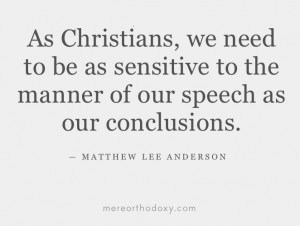I have a few thoughts up over at Q on how Christians should behave in public on issues where there is widespread disagreement--disagreement which in this case has been codified around our elections.
Login to read more
Sign in or create a free account to access Subscriber-only content.
Topics:
